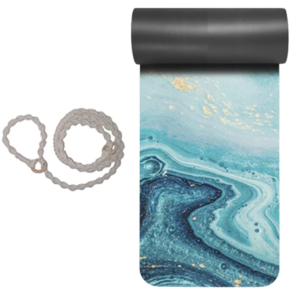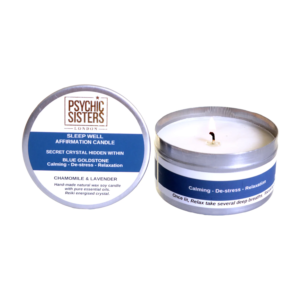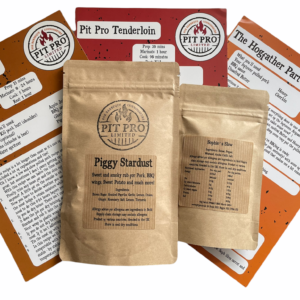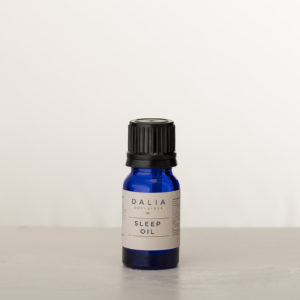Mental Health: A Sit-down With Tania Diggory From Calmer.
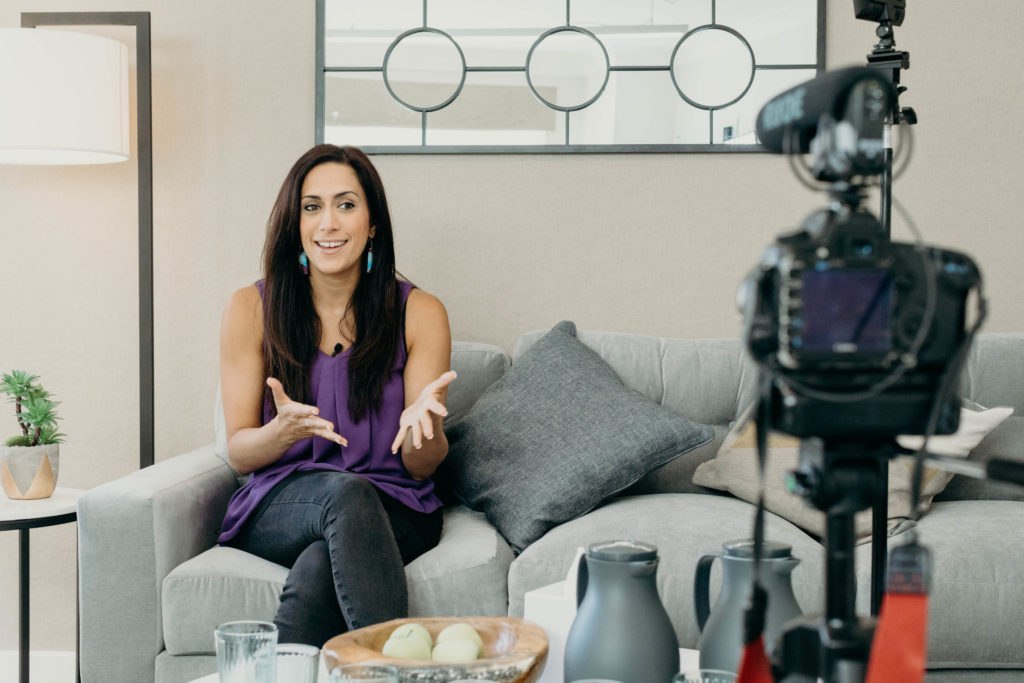
Meet Tania Diggory from Calmer. In this piece, we discuss mental health and well-being in business.
Mental health within the workplace is still a relatively new concept. And whilst we have come a long way, there’s still a long way to go. And that’s where Tania Diggory and her business, Calmer, comes in.
Launched in 2016, Calmer is an award-winning mental health training organisation that specialises in supporting and empowering Entrepreneurs, Solopreneurs, Freelancers, and Business Teams to nurture their own mental health and well-being.
As a prevention-based company, Calmer signposts people to seek clinical support as and when needed. The objective of Calmer is to help early career and long-established professionals to prevent low-level stress from escalating into burnout, and to nurture good mental health.
The organisation accomplishes this through workplace training courses, mental health strategy development, digital products, events and webinars.
Prior to launching Calmer, Tania ran two different businesses – a dance school, and an international dance events company. Juggling both, Tania admitted to working excessive hours without proper breaks. This led to her own personal experience of high stress, burnout, and anxiety (and in particular, panic attacks).
“I was working weekends and evenings, and I just wasn’t listening to my body. I didn’t think about looking after my well-being at the time,” says Tania. Tania’s experience became the primary motivation behind launching Calmer. “Hearing the stories of other entrepreneurs I knew, and how much they were struggling with stress and burnout but not talking about it, I suddenly thought – why aren’t we all talking about this?” she added.
“So I ended up retraining as an NLP Practitioner, Mindfulness teacher, Mental Health trainer and First Aider. I set up Calmer as a platform to support entrepreneurs, start-ups, and creators to look after their mental health and well-being. In time, this has developed into supporting a range of professionals and business teams at large to look after themselves.”
Pro-mental health and Tania’s well-being model has never been more important than now. According to the Mental Health Foundation and the NHS website, following the pandemic, around 15 million working days were lost due to stress, depression and anxiety alone.
In general, stress is costing organisations a whopping 45 billion pounds as a result of sick days taken, and time off work due to stress per year (which is more than any other sickness-related absence issue).
“The reality is that when workplaces and start-ups invest in mental health and well-being, they usually see a return on that investment,” Tania shares. “Examples include an increase in loyalty, retention of staff, productivity, happiness, team comradery, and general feelings of appreciation and value.”

The Global Wellness Institute recently cited that the size of the global wellness market is now three times the size of the pharmaceutical industry, “which is incredible, when you think about it,” states Tania.
There is also a growing body of evidence that shows that even though people are becoming more aware, with more access to wellness resources and information than ever before, stress is still a leading cause of physical illness.
And when it comes to COVID-19 and its impact on our mental health, there’s no doubt that the pandemic has had a HUGE impact. Studies have shown that around 60% of adults, and 68% of young people in the UK struggled with their mental health during lockdown.
Because many people were furloughed or lost their jobs completely, they had to learn how to adapt, work, and function differently. “Considering that we were unable to see or spend quality time with some of the people most meaningful to us, many people felt a loss of routine, in-person connection with others, and variety in their lives – all of which is incredibly important for our overall sense of well-being.”
On the flipside though, Tania believes that the pandemic has created a great opportunity for us to “take stock of our lives,” especially when the pace of life came to an abrupt halt. This in turn, gave us a chance to reflect on what is most important to us.
“Some people,” she describes, “experienced profound realisations during lockdown. For others, it’s been challenging and traumatic. We’ve all been affected in different ways, and for those who have had a particularly difficult time, this needs to be taken into account moving forward. Workplaces in particular have a legal duty of care to ensure that adequate support is available for employees who need it.”
So how do we recognise these stressors and prevent them from escalating into more serious issues?
“There’s a term in neuroscience called the ‘mind-body connection.’ Essentially, the mind has the power to either heal or hinder the body. What we think affects how we feel, and therefore, how we behave,” said Tania.
To elaborate, Tania presents an example of her own stress response: “There are so many signs and signals that can present in our bodies when we experience stress. When I feel stressed, I notice that my heart rate picks up speed, my cheeks feel flushed, my muscles feel tense, and my breathing rhythm changes.”
Tania then goes on to highlight how the body responds when you’re feeling relaxed and happy, such as relaxed shoulders, feeling more centred, and once again, a change in your breathing pattern.
“When you’re not holding onto tension in your body, you’ll naturally feel lighter, a sense of ease, and as a result, more calm and fluid breathing. When you consciously create a bit of distance from stressful circumstances, it’s also likely that you’ll be better able to think clearly.”
Through her uniquely tailored knowledge within this sector, Tania is adamant that if entrepreneurs are struggling with maintaining their sense of well-being, the key thing is to give themselves permission to take a step back.
“We are human beings, not human doings. We are not created to just keep going, and keep doing all the time, without taking a pause – we’re not made like machines. We do need time to switch off, reflect, reassess, and replenish our energy levels. To just be.”
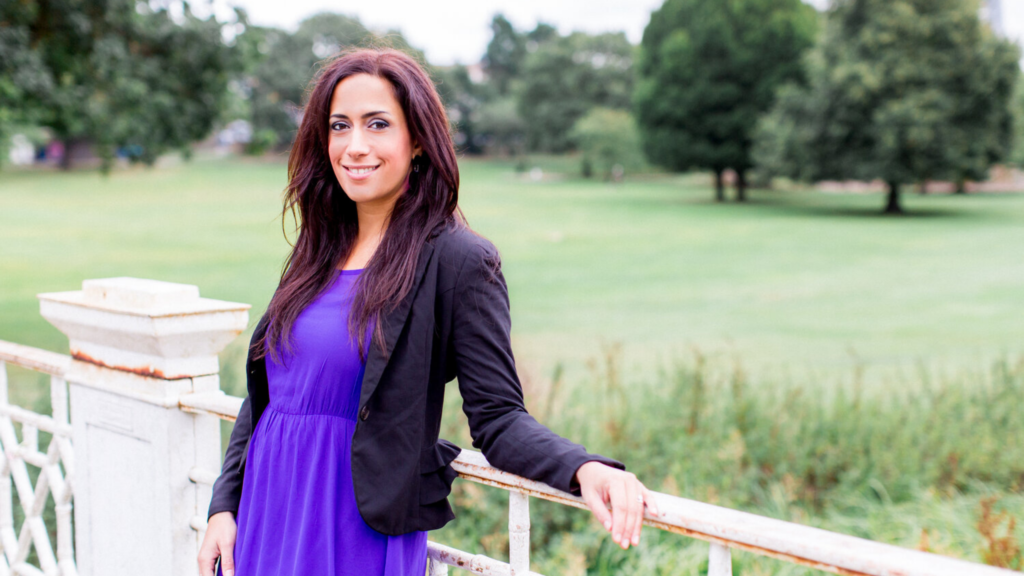
When we become more aware of how stress presents itself in our minds and bodies, AND how it can escalate into burnout, we can take steps to look after ourselves, and foster more sustainable working practices.
“For some people, this can be simple mindfulness-based practices, such as meditation and breathing techniques, which have been scientifically proven to reduce stress levels and calm your nervous system. For others, taking stock can involve getting out in nature, going for a walk, doing something creative or spending time with loved ones. It can also be listening to uplifting music, taking time to journal, cooking – whatever it is that gives you an outlet of self-expression, which is something we all need for our well-being.”
To understand stress, is to understand that stress is a part of being human.
“The part of the brain where the stress response lives is called the Amygdala. It’s the emotional centre of the brain. From an evolutionary perspective, it’s a very primitive part of the brain that wants to keep you safe and away from danger. We all experience stress in different ways, and it’s all relative. There are times when stress will motivate you to take action, and other times when stress will escalate into heightened states of anxiety or mood fluctuations, and if not managed, it can lead to burnout. It’s important for us all to discover ways to manage and down-regulate our stress response. If we experience an ongoing state of stress long-term, we’ll constantly feel on high alert, which isn’t healthy. It can be detrimental for our productivity levels, focus and decision-making abilities.”
If we continue to normalise high levels of stress within the context of entrepreneurialism and the workplace, it can lead to ongoing health issues, chronic fatigue, and depression (also known as ‘the five stages of burnout‘).
The model (which was inspired by Winona State University’s study on burnout) involves five main areas identified as “crucial” to the understanding of burnout: The Honeymoon Phase, The Onset of Stress, Chronic Stress, Burnout, and Habitual Burnout.
Habitual burnout is where significant ongoing mental, physical, or emotional problems escalates into more chronic symptoms and fatigue, which, Tania says, has the potential to develop into deeper mental health issues.
“Stop, breathe, and trust” is the mantra associated with Calmer’s award-winning campaign, The Reignite Project, to remind people to give themselves permission to stop and take stock. The Reignite Project includes an e-course that you can sign up to that provides burnout prevention strategies.
“It’s our way of giving back. We’ve developed a free 10-week e-course providing burnout-prevention strategies, in the hope that we can help to prevent the impact of burnout for at least 600,000 entrepreneurs and business teams by 2023.” Tania finishes by saying, “Here’s to your inner and outer success, not just what people see on the outside, but what’s going on on the inside, too.”
You can explore these issues further on the Calmer blog, where you’ll find a range of links to other resources and research. You can also learn more about mental wellness for entrepreneurs and business teams by tuning into Calmer’s podcast, Take Regular Breaks.
Find out more here: https://www.thisiscalmer.com
And don’t forget to watch the full recap from our Get Calmer With Gramersi: Mental Wellbeing For Entrepreneurs event below:
Also, you can check out our recent video interview with Tania below:


